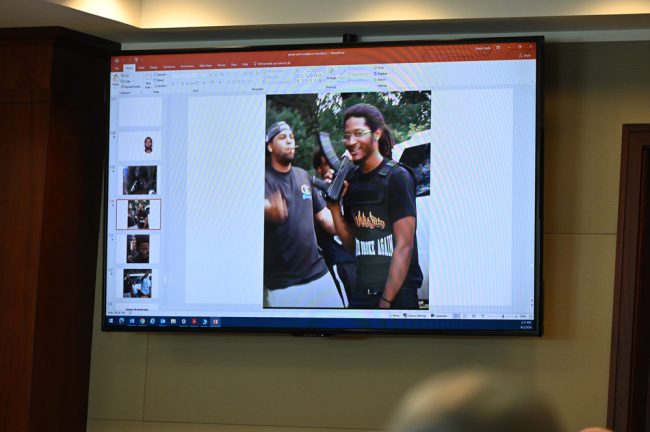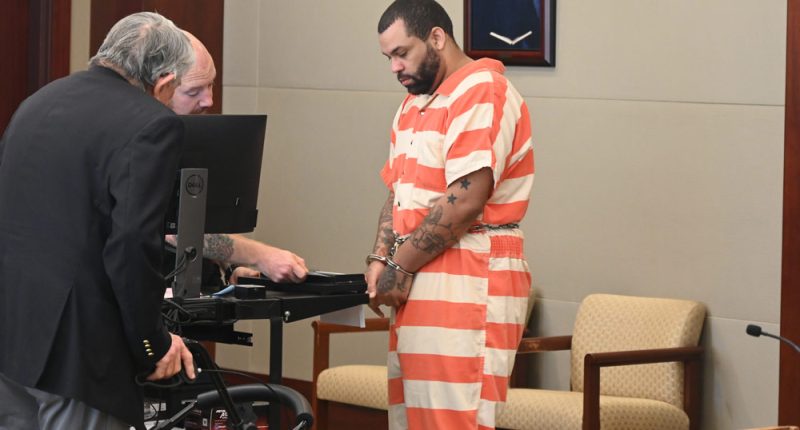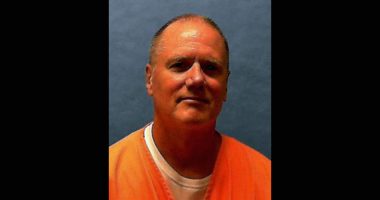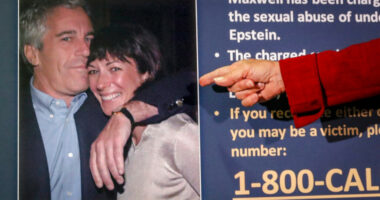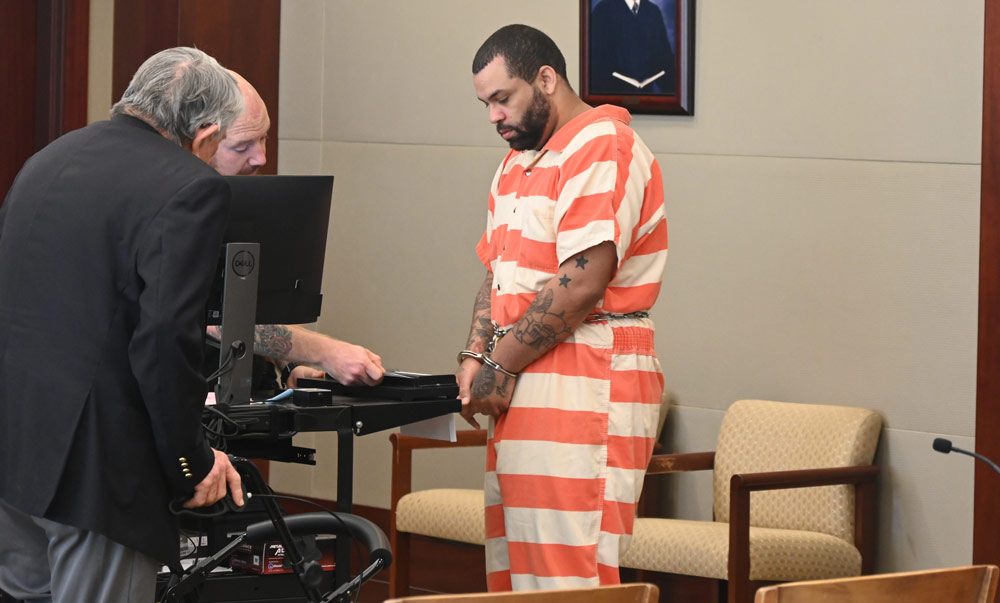
Maybe it was his preference for an empty courtroom. It’s easier to save face in the absence of an audience. Maybe it was just good sense breaking through a year’s intransigeance. “For what it’s worth,” the judge told Derrius Bauer this morning, “I think you made a wise decision.”
Two days after he stood before Circuit Judge Dawn Nichols to decline yet again to plead out and instead risk life in prison if convicted at trial, Bauer, 30, this morning signed a plea agreement that may have him out of prison by the time he’s 38.
Bauer pleaded no contest to accessory after the fact of a capital felony, a first degree felony. He had faced a first-degree capital murder charge, an attempted second degree murder charge, and a charge of firing into an occupied vehicle.
The lesser charge to which he pleaded would have been one of the so-called “lesser included offenses” that would have been part of a jury’s verdict sheet, giving it the option of convicting him on that charge instead of the capital charge. The family of Deon Jenkins had also agreed to the plea terms, having gotten satisfaction from the conviction of the shooter.
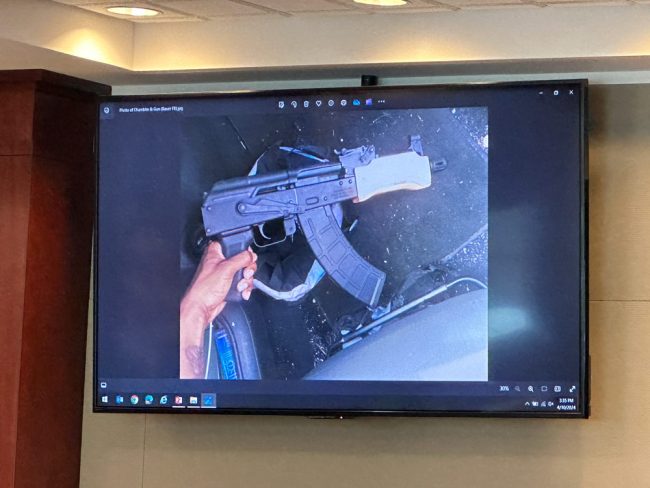
Bauer was sentenced to 15 years in prison. He has already served more than four at the county jail. He is eligible for gain time, or early release after serving 85 percent of his sentence. He could be out of prison by the time he’s 38.
Not just for Bauer but for the court, for prosecutors and for the Flagler County Sheriff’s detectives who cracked the case, the plea ends the oldest high-profile case on the docket, and the longest and most expensive investigation in the Sheriff’s Office’s history.
It also resolves what had been a puzzle for almost a year: why, after Marcus Chamblin, the man Bauer helped pull off the murder of Deon Jenkins, was convicted and sentenced to life in prison, Bauer continued to insist on his innocence and decline a generous plea his mother begged him in court, and in tears, to take. Assistant State Attorney Mark Johnson built his prosecution of Bauer on the same evidence that led a jury of 12 to convict Chamblin in 48 minutes.
This morning Wayne Henderson, Bauer’s attorney, told the court that his client had called him yesterday to say that he’d take the plea–to say he had no choice but to do so.
“I don’t ever want to take a plea when somebody says to me, they have no choice,” the judge told Bauer. “You always have the choice to go to trial. But I’ve explained to you my concerns about that and what your exposure is. So that’s one choice you have.” She said she would not prevent him from going to trial if that’s what he preferred. But she had also spent any a hearing trying to convince him not to.
“It sounds to me like you’ve been thinking about this, and you’re weighing what’s in your best interest to do, what’s the smart thing to do,” Nichols continued, laying out the alternative of a plea. “I can tell you that I think it’s a wise choice. I think it’s a smart choice. I think that you have thought about it very thoroughly and very carefully. And I think it’s the right choice, but ultimately it is your choice.”
Unemotionally, still mumbling his answers as he usually has, Bauer agreed. His attorney filled out the plea form. The judge went over it with Bauer, and sentenced him, ending the case. Bauer got fingerprinted and was ushered out. This time, his mother–who had walked out of the courtroom in sobs two days ago–was not there. Only three students attended the hearing, along with two of the three lead detectives who worked the case: George Hristakopoulos and Augustin Rodriguez. Darrell Butler was the third.
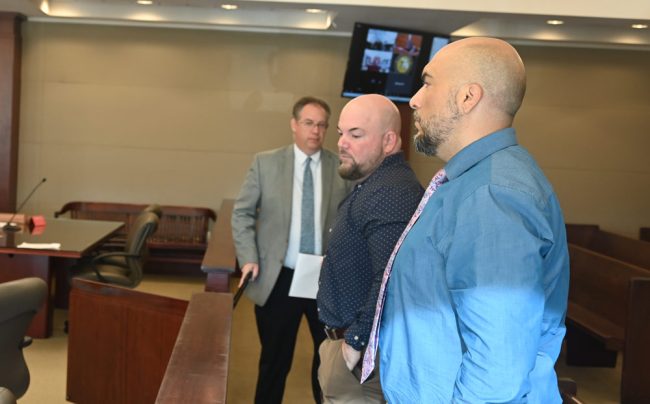
“We’re relieved that the case is finally completed,” Johnson said after the hearing. “This happened in 2019 so it’s been going on for about six years. We’re happy to see that some justice is finally served on both the defendants that were involved in this particularly egregious shooting that occurred in this particular community. It happened in such a way that really frightens people here in this community.”
It’s never been made clear what triggered Chamblin to kill Jenkins. Jenkins had been a roommate of Chamblin’s brother, D’Shawn Hosang. The night of Oct. 11, 2019, Hosang threw Jenkins out of the house and called Chamblin to complain about something regarding Jenkins–what that was remains a mystery. The most Hosang said when he testified was too petty to warrant even a dispute. He said there’d been some kind of disagreement over a pizza. That certainly was not what caused Chamblin to get enraged and arrange with Bauer to kill Jenkins.
Bauer called Jenkins, drawing him to the Circle K on Palm Coast Parkway, where Bauer and Jenkins spoke. Bauer by then had dropped off Chamblin somewhere in neighboring weeds. After speaking with Jenkins, Bauer drove off. Chamblin walked through back alleys to the station, got behind Jenkins’s car, and fired his assault rifle, killing Jenkins and wounding a passenger, who survived. Bauer then picked up Chamblin and they returned to the Microtel, where they’d booked a couple of rooms.
Detectives used phone pinging data, texts, surveillance video and other evidence to reconstruct the hours and moments that led to the shooting, and the getaway afterward. It was difficult to imagine a different outcome for Bauer, had he gone to trial.
“It was a very good deal for him,” Johnson said. “It was an offer that we discussed with Deon Jenkins’s family, and they were on board with it. I think that once we tried Marcus Chamblin, who was the actual perpetrator of the shooting, actually killed their son, that was deeply satisfying to them, obviously this was satisfactory to them, so that’s what we went forward with.”
![]()
